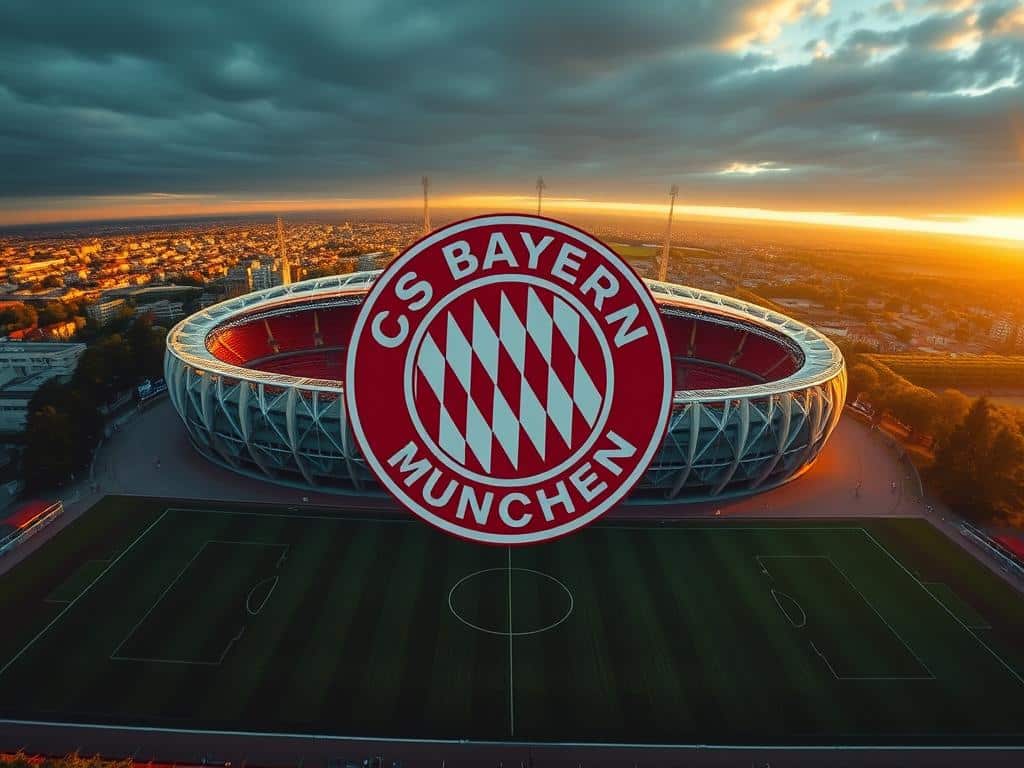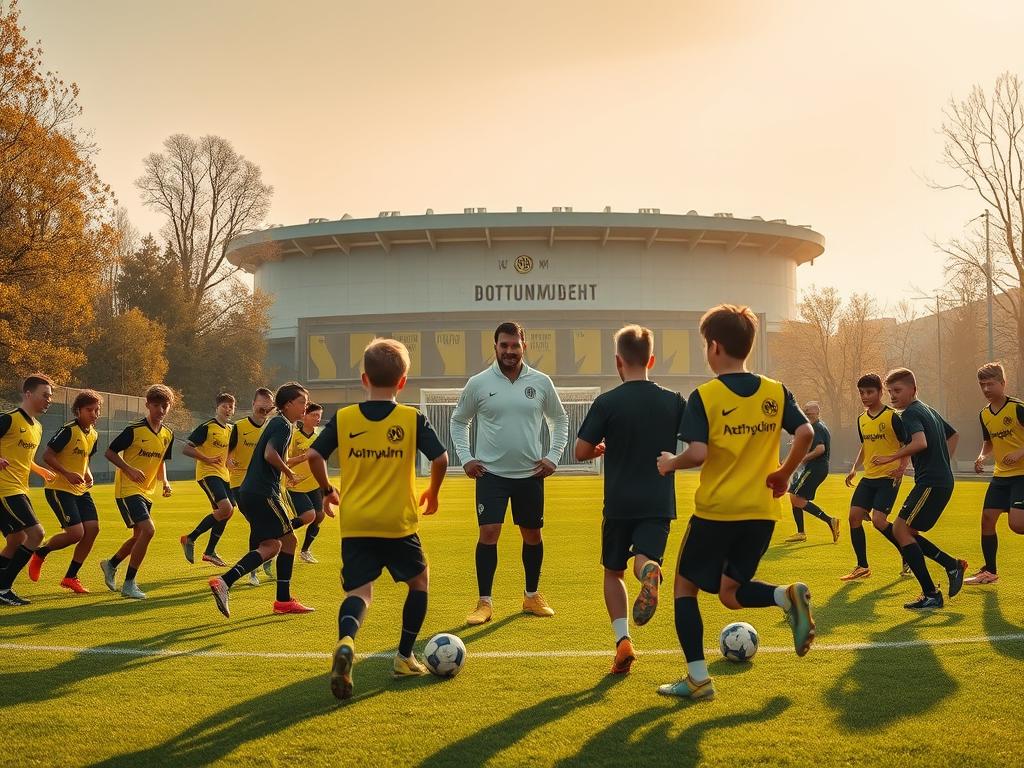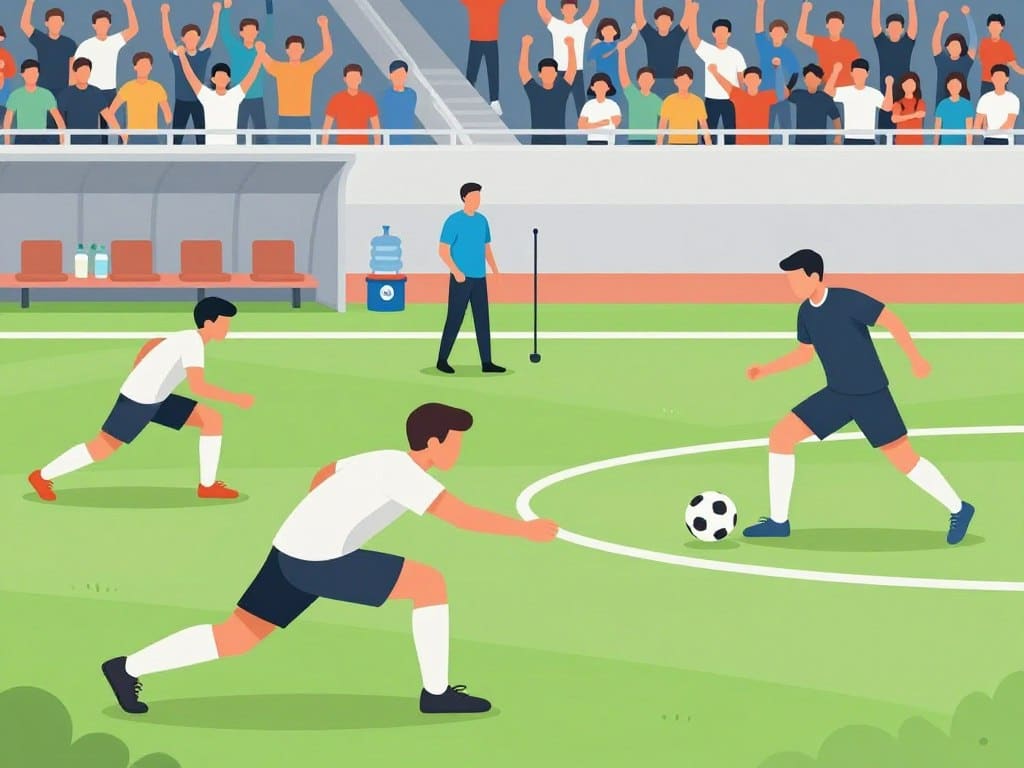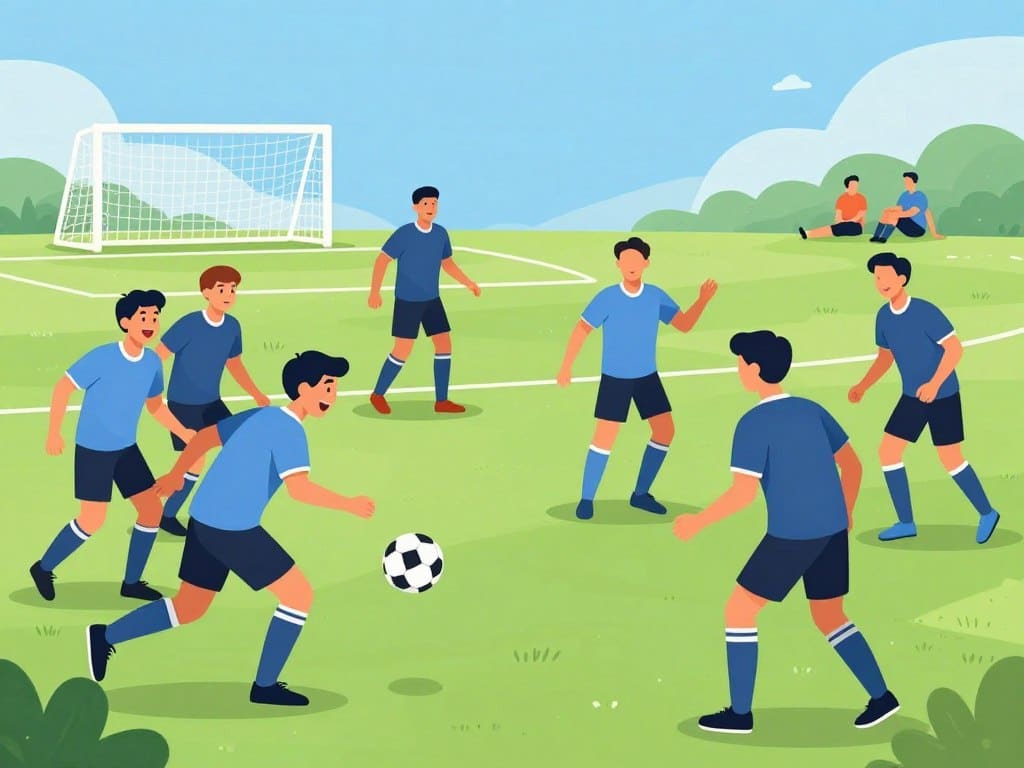For over a decade, one club ruled German football with an iron grip. From 2012 to 2023, they collected the Meisterschale every single season, setting records that may never be broken. Their 11-year title streak stands as Europe’s longest-running domestic reign.
What made this team unstoppable? A mix of smart tactics, financial strength, and legendary players. They smashed the 91-point record in 2012/13 and netted 100 goals in 2019/20. Even their treble-winning campaigns couldn’t slow them down.
But all dynasties eventually face challengers. Bayer Leverkusen’s 2023/24 triumph marked a historic shift. Now, let’s explore how this powerhouse maintained control for so long – and what finally changed the game.
The Unmatched Legacy of Bayern Munich in the Bundesliga
No European club has matched Bayern’s incredible 11-year title run. From 2012 to 2023, they lifted the trophy every season, setting a benchmark no other team has touched. Their consistency wasn’t just about winning—it was about rewriting history.
11 Straight Titles: A European Record
The numbers tell the story:
- 25-point margin in 2012/13—the largest in Bundesliga history.
- 53 games unbeaten across 2013/14, a streak still unmatched.
- Pep Guardiola’s 2013/14 squad earned 90 points, blending flair with ruthless efficiency.
Even when rivals like Dortmund pushed hard, Bayern always found a way. Their 2020 treble-winning season proved they could dominate Europe while ruling at home.
Comparing Bayern’s Streak to Other Top Leagues
How does 11 titles stack up globally?
- Juventus: 9 Serie A wins (2012–2020).
- Lyon: 7 Ligue 1 crowns (2002–2008).
- Real Madrid: Two 5-year La Liga streaks (1960s and 1980s).
England’s Premier League has never seen more than three straight titles (Man Utd, Man City). Bayern’s run redefined what’s possible in top-flight soccer.
By 2024, Leverkusen’s rise finally ended the streak. But for over a decade, this club wasn’t just winning—they were redefining German football.
How Bayern Munich Built Their Bundesliga Dynasty
Building a soccer dynasty takes more than just talent—it demands vision. For over a decade, this club combined world-class players with tactical geniuses to create an unstoppable team. Their secret? A culture of success that thrived on adaptation.
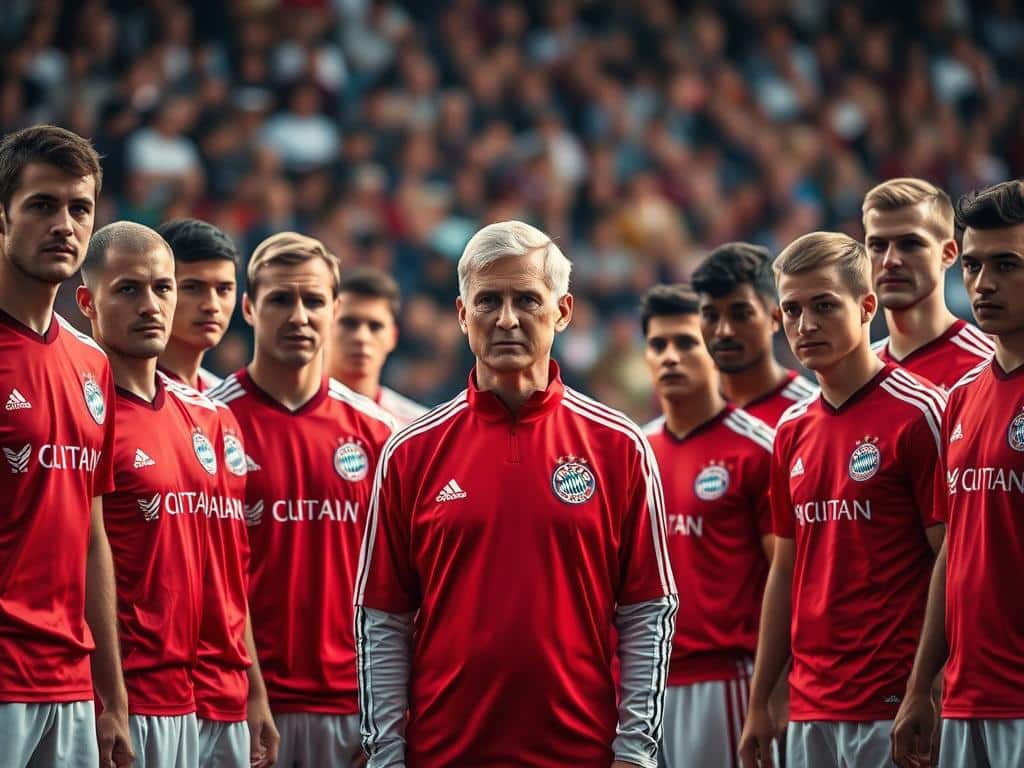
Key Players Who Defined the Era (2012–2023)
Robert Lewandowski’s 344 goals and Thomas Müller’s record assists were the heartbeat of the squad. Philipp Lahm’s leadership and Manuel Neuer’s goalkeeping redefined their roles.
Young talents like Jamal Musiala emerged under their guidance, proving the club’s scouting brilliance. The 2013 treble-winning squad, with Schweinsteiger and Robben, set the standard for future generations.
From Heynckes to Tuchel: Coaching Mastery
Jupp Heynckes laid the foundation with discipline, while Pep Guardiola added flair. His tiki-taka style led to Champions League glory and a 90-point season in 2013/14.
Hansi Flick’s high-pressing tactics in 2020 produced a sextuple. Even with changes, the coaching philosophy kept the team dominant. Each era built on the last, creating a legacy that rivals still study today.
Tactical Brilliance Behind Bayern Munich’s Dominance
Great teams don’t just play; they execute a carefully crafted strategy. For over a decade, this club’s tactical evolution kept them ahead of the competition. From possession-heavy systems to relentless pressing, their adaptability defined an era.
Possession and Pressing: The Guardiola Blueprint
Pep Guardiola’s arrival in 2013 changed the game. His tactics averaged 72.8% possession—a Bundesliga record. Every pass had purpose, suffocating rivals like Dortmund’s counterattacks.
The 8-0 demolition of HSV in 2015 showcased this dominance. Players rotated positions seamlessly, turning the pitch into a chessboard. Even without the ball, their pressing traps forced errors.
Adapting to Challenges: Evolution Under Flick and Nagelsmann
Hansi Flick’s 2020 side flipped the script. High pressing yielded 4.3 goals per match, with Müller’s “Raumdeuter” role confusing defenses. Alphonso Davies emerged as a world-class wing-back, blending speed with precision.
Julian Nagelsmann later hybridized formations (3-5-2 and 4-2-3-1). His 6-0 wins over Wolfsburg proved flexibility. Under Thomas Tuchel, De Ligt’s defense and Musiala’s creativity kept the machine humming.
Financial Power: The Gap Between Bayern and the Rest
Money talks in soccer, and few clubs speak louder than this German giant. Their financial edge wasn’t just about spending—it was a masterclass in sustainable success. Let’s break down how cash flow built a dynasty.
Squad Value Comparison: Bayern vs. Bundesliga Rivals
The numbers don’t lie. From 2012 to 2023, this club’s roster was worth €250M+ more than Dortmund’s. That gap translated directly to the pitch:
- 0.77 correlation between squad value and points in the league table.
- Free transfers like Goretzka and poaching rivals (Götze) widened the divide.
- Leverkusen’s 2023/24 title? A rare triumph against the financial odds.
How Revenue Fuels Sustained Success
With €853M in 2023 revenue (double Dortmund’s €420M), the club turned commercial deals into trophies:
- Allianz Arena naming rights and global partnerships (Adidas, Audi) created steady cash flow.
- Champions League earnings stacked the deck further—Bayern outearned rivals by 40%.
- Even the Bundesliga’s 50+1 rule couldn’t slow their financial creativity.
Bottom line: In soccer, revenue isn’t just a number—it’s the foundation of a winning culture.
Bayern Munich’s Greatest Bundesliga Seasons
Two seasons stand out in their incredible run—both rewriting history in different ways. The 2012/13 campaign delivered a treble, while 2019/20 showcased near-perfect soccer. Here’s why these years defined an era.
2012/13: The Treble-Winning Run
Fans still replay Schweinsteiger’s title-clinching goal against Frankfurt. That moment capped a season of dominance: 29 victories, 91 points, and a +80 goal difference.
Key factors behind the success:
- Javi Martínez: His €40M transfer solidified the midfield, enabling Heynckes’ pragmatic 4-2-3-1.
- Neuer’s wall: 18 clean sheets, including a Champions League final shutout vs. Dortmund.
- Lewandowski’s arrival: Though he joined later, his 41 goals in 2021 echoed this blueprint.
2019/20: Perfection Under Hansi Flick
Post-lockdown, the team became unstoppable. Ten straight wins included a 4-2 Klassiker thrashing of Dortmund. Müller’s 21 assists and Lewandowski’s 34 goals fueled the charge.
How Flick changed the game:
- High-pressing chaos: Forced 15+ turnovers per match, overwhelming rivals.
- Sané’s impact: Added width after joining, complementing Davies’ record-breaking speed.
- Neuer 2.0: Evolved into a sweeper-keeper, stopping 84% of shots faced.
From trebles to sextuples, these years proved why this club ruled German football.
The Challengers: Why Dortmund, Leipzig, and Leverkusen Fell Short
Every champion needs worthy rivals, but for years, no one could match this club’s relentless consistency. Teams like Borussia Dortmund and Bayer Leverkusen pushed hard, yet their efforts often ended in heartbreak. Let’s break down why.
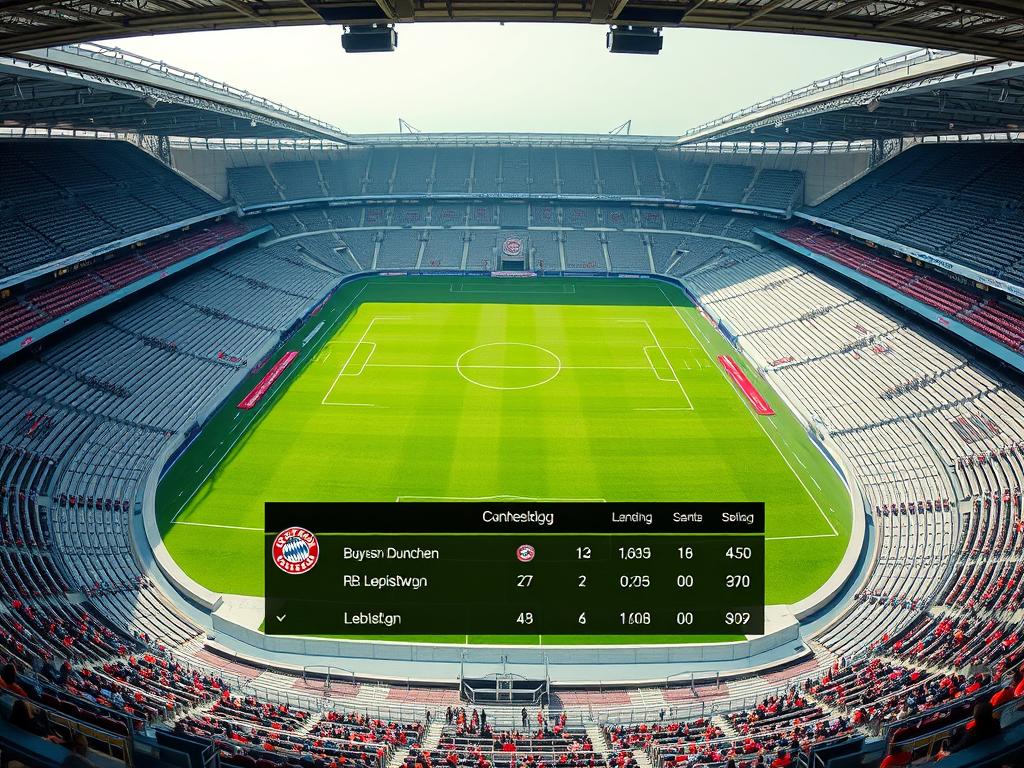
Borussia Dortmund’s Near-Misses
Fans remember the 2018/19 season—Dortmund led the standings until May. Then came the collapse. A 2-2 draw against Frankfurt handed the title away by two points.
Key factors behind their stumble:
- Financial gaps: €600M debt limited squad depth compared to Bayern’s reserves.
- Psychological blows: A 5-0 Klassiker loss in 2019 shattered morale.
- Musiala’s 89’ winner in 2022/23 summed up their cruel luck.
2023/24: How Leverkusen Finally Broke the Streak
Xabi Alonso’s tactics changed everything. Bayer Leverkusen overperformed xG by +12.3, with Wirtz and Frimpong connecting flawlessly.
Their recipe for success:
- High-pressing: Forced Bayern into rare errors.
- Financial savvy: Smart signings like Grimaldo (free transfer) closed the gap.
- A 3-0 win in April 2024 marked the end of an era.
For the first time in 11 years, the challengers didn’t just compete—they conquered.
Bayern Munich’s Dominance and the Future of the Bundesliga
The league remains one of Europe’s most exciting, even after years of one-team rule. New challengers like Leverkusen and Leipzig prove young talent and smart scouting can shake things up.
Stars like Mathys Tel and Aleksandar Pavlović signal a bright future for the reigning champions. Financial fair play rules may help other teams close the gap, but revenue-sharing talks are still ongoing.
With fresh faces joining the squad this summer, the race for the Meisterschale could get tighter. Can anyone build lasting success? The next chapter of German football promises thrilling answers.

